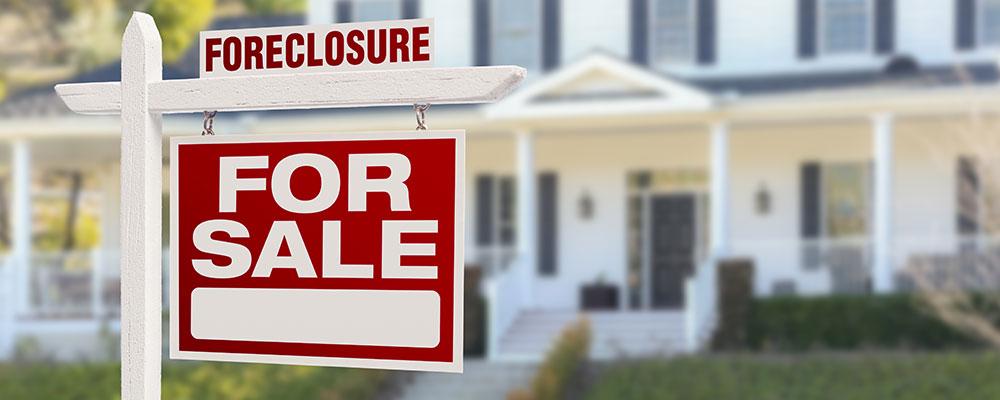1512 Artaius Parkway, Suite 300,
Libertyville, IL 60048
Call for a FREE Phone Consultation
847-549-0000
Video Consultations Also Available
 Spanish
Spanish Cantonese
CantoneseServing Clients Across 7 Illinois Locations
The Foreclosure Process in Illinois

Lake County Foreclosure Attorneys Explain How Home Foreclosure Works
If you are behind on your mortgage payments, it is important to realize that the situation is extremely serious. You need to take action or the lender can foreclose on your loan and take your home. Fortunately, there are some things that you can do to fight a foreclosure, and the experienced attorneys at Newland & Newland, LLP are equipped to help you. The first step is understanding how the foreclosure process works so that you can be prepared for the road ahead.
Falling Behind
It is not uncommon for an individual or family to occasionally fall behind on their bills, and a late mortgage payment is not all that big of a deal on its own. Most lenders offer at least a 15-day grace period from the payment due date, after which late fees are usually assessed. Your lender will probably start calling you and sending letters, as well as offering payment plans and other programs to help you catch up your payments. If you miss a few payments, however, and reach the 90-day point, your loan could be considered in default. Once you are delinquent by 120 days or more, your lender can initiate foreclosure proceedings in court. Illinois is a state in which all foreclosures are judicial foreclosures, which means the court system has jurisdiction over the matter.
Breach Letters and Demand Letters
Most mortgage agreements in Illinois contain provisions that require lenders to notify borrowers that a loan is in default before they can take legal action. This notice is called a breach letter or a demand letter. A breach letter must include several points, including:
- The loan default and the reason for the default;
- The action that would resolve the default;
- A deadline date for resolving the default, usually at least 30 days from the date of the letter; and
- A notice that failure to resolve the default will result in the loan being accelerated and the possible sale of the property.
If the defaulted mortgage is still not addressed, the lender may file a foreclosure action with the court. The action is usually filed in the county where the property is located, but foreclosures can be filed in federal court as well.
Foreclosure in Illinois
Foreclosure proceedings begin with a complaint filed by the lender. The borrower is served a copy of the complaint and a summons, along with a notice of his or her rights during foreclosure. In most cases, the borrower has 30 days to file a response. Failure to respond will result in a default judgment for the lender.
If you have been served a summons for a foreclosure proceeding, the attorneys at Newland & Newland, LLP can help you draft your response. In your response, you have the opportunity to present a defense, if applicable. Depending on the circumstances of the case, the court may enter a summary judgment in favor of the lender, or a trial will be ordered. If the court finds in favor of the lender, a judgment of foreclosure will be entered against you.
In Illinois, there is a redemption period during which you have the legal right to pay off the total debt plus certain costs and interest and reclaim your property, even after a judgment of foreclosure. The property cannot be sold during the redemption period. The redemption period for residential property expires three months from the date of the judgment or seven months after the service of the initial complaint, whichever is later.
The Sale and Eviction
Before your foreclosed home can be sold, a notice of the sale must be published in the local newspaper for at least three consecutive weeks. You must also be notified by mail at least 10 days in advance of the sale. At the sale, the property may be sold to the highest bidder or revert to the lender. If your remaining debt is greater than the foreclosure sale price, the lender may seek to collect the difference from you through a deficiency judgment.
If you are still living in the home at the time of the sale, the new owner may offer you money to get you to move out—sometimes called a cash-for-keys deal. Otherwise, the court order approving the foreclosure sale will usually include a provision that gives possession to the lender or new owner 30 days after the order is entered.
Call 847-549-0000 Today
To learn more about the foreclosure process in Illinois, contact our office. Call 847-549-0000 for a free, no-obligation consultation at any of our five offices located throughout Northern Illinois. Newland & Newland, LLP serves clients in Libertyville, Waukegan, Mundelein, Vernon Hills, Gurnee, Arlington Heights, Lake County, and the surrounding areas.
 Stop Foreclosure
Stop Foreclosure




















